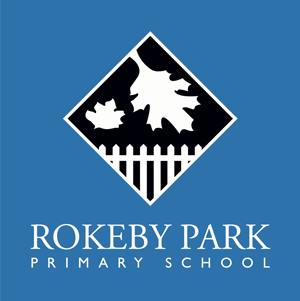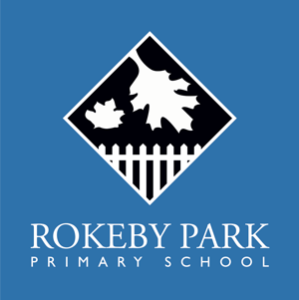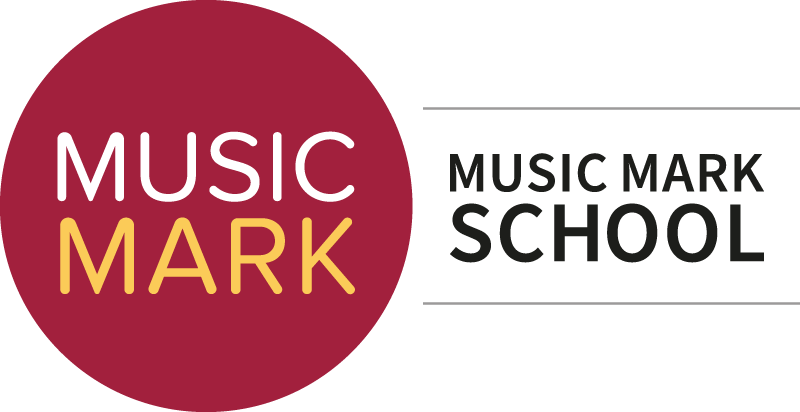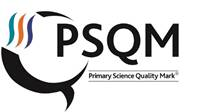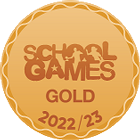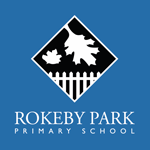
Writing – curriculum information
Intent
Writing it is an essential life skill and has a pre-eminent place in education and in society. We aim to teach pupils to speak and write fluently so that they can communicate their ideas and emotions to others and through their reading and listening, others can communicate with them. It is our intent that children understand the social functions of writing in order to use different genres of writing appropriately by considering the purpose and matching it to its audience. Children will develop a progressive understanding of grammatical conventions, the way in which punctuation aids understanding and know how to apply spelling rules. All children will secure a joined, legible and increasingly efficient handwriting style.
At Rokeby Park Primary School, the teaching of writing within the English curriculum has been carefully considered to enable our pupils to become confident and creative writers. A progressive skills document details objectives for each year group which are sequenced to ensure pupils secure the acquired skills and knowledge to further their education journey into Key Stage 3 and beyond.
At Rokeby Park Primary School, we aim to promote high standards of language and literacy by equipping pupils with a strong command of the spoken and written language, and develop their love of literature through widespread reading for enjoyment. We aim to ensure that all pupils:
- Acquire a wide vocabulary, an understanding of grammar and knowledge of linguistic conventions for reading, writing and spoken language
- Appreciate our rich and varied literary heritage
- Write clearly, accurately and coherently, adapting their language and style in and for a range of contexts, purposes and audience
- Use discussion in order to learn; they are able to elaborate and clearly explain their understanding and ideas
- Are competent in the arts of speaking and listening, making formal presentations, demonstrating to others and participating in debate
By the end of EYFS, pupils will:
Be able to write recognisable letters, most of which are correctly formed. They will be able to spell words by identifying sounds in them and representing the sounds with a letter or letters. It is expected that they will also write simple phrases and sentences that can be read by others. Children will show good control and co-ordination in their small movements. They will handle equipment and tools effectively, including pencils for writing.
By the end of Key Stage 1, pupils will:
Be able to write narratives, both real and fictional. Children will write using past and present tense mostly correctly and consistently. Children will demarcate sentences using capital letters, full stops and question marks most accurately. Children will spell most common exception words correctly. Handwriting will show consistency in letter sizing.
By the end of Key Stage 2, pupils will:
Be able to reflect their understanding of the audience for and purpose of their writing by selecting appropriate vocabulary and grammar. They will consciously control sentence structure in their writing and understand why sentences are constructed, using a range of devices to build cohesion within and across paragraphs.
Children will use a range of punctuation and maintain tense throughout a piece of writing, spelling most words correctly, or being able to use resources quickly and efficiently in order to support spelling. Handwriting will be consistently joined.
Pupils will understand nuances in vocabulary choice and age-appropriate, academic vocabulary.
Implementation
Throughout the school we use ‘Talk for Writing’. Talk for Writing advocates that children imitate the key language needed for a particular genre orally, before reading and analysing it. Children rehearse retelling a text, then through shared writing they are shown how to craft their own writing in the same style before independently applying what they have learned. The approach includes imitation, innovation and independent application (invention).
EYFS
Children’s writing generally develops at a slower pace than their reading. Before they can write independently in a way that can be read by others, they need to know:
- what they want to say
- how to identify sounds in words
- at least one way to spell each of the sounds of English
- how to form letters.
Although the process of learning to write follows a predictable sequence, writing involves far more than simply development of fine motor skills. It involves sequencing of motor actions, co-ordination between the eyes and the hands; controlled use of one hand in carrying out complex movements independently of the other – reflective of increasing functional hemispheric independence – and translation of speech sounds into written symbols. We recognise that a child needs to be able to master gross motor control and co-ordination skills before they can develop writing and pencil control.
In EYFS, writing, mark-making and pre-writing skills are crucial. Being able to hold a tool to make marks and represent words and communicate meaning is a skill that requires strong pedagogy. All staff in EYFS understand child development and the development of mark-making, writing, communication and language. Writing and the skill of writing is essential, but the skill of handwriting specifically is separate to that. Staff teach handwriting with a focus on legibility, speed and fluency, automaticity, and sustainability.
Staff working within EYFS show and share writing, letter formation and their handwriting so that the children have very positive and frequent modelling. We recognise that the more children see writing modelled for different purposes and have inspiring opportunities to represent and communicate their ideas, the more they are likely to want to write.
Vocabulary development is a key focus throughout EYFS. We create a language-rich environment, where adults talk with children throughout the day, engaging them in high-quality dialogue as well as direct teaching, to support children to articulate what they know and understand, and develop their knowledge across all areas of learning, using the vocabulary they need to support learning. Stories, books and rhymes are regularly shared and the Talk for Writing process is followed to allow children to internalise and use the vocabulary learned through sharing these stories.
Key Stage 1
Pupils read and listen to whole books, following the Talk for Writing process, which helps them to increase their vocabulary and grammatical knowledge, including their knowledge of the vocabulary and grammar of Standard English. Pupils draw on and use new vocabulary from their reading, their discussions about it and from their wider experiences.
Year 1
Pupils entering year 1 who have not yet met the early learning goals for literacy continue to follow the school’s curriculum for the Early Years Foundation Stage to develop their word reading, spelling and language skills. However, these pupils follow the year 1 programme of study in terms of the books they listen to and discuss, so that they develop their vocabulary and understanding of grammar, as well as their knowledge more generally across the curriculum. If they are still struggling to decode and spell, they are taught to do this urgently through a Read Write Inc (RWI) Fast Track tutoring which is rigorous and systematic phonics programme so that they catch up rapidly. Teachers demonstrate the skills and processes essential to writing: that is, thinking aloud as they collect ideas, drafting, and rereading to check their meaning is clear.
Teachers ensure that their teaching develops pupils’ oral vocabulary as well as their ability to understand and use a variety of grammatical structures, giving particular support to pupils whose oral language skills are insufficiently developed.
Reading is taught alongside spelling, so that pupils understand that they can read back words they have spelt. At this stage pupils will be spelling some words in a phonically plausible way, even if sometimes incorrectly. Misspellings of words that pupils have been taught to spell is corrected; other misspelt words are used to teach pupils about alternative ways of representing those sounds. Writing simple dictated sentences that include words taught so far gives pupils opportunities to apply and practise their spelling.
Handwriting is taught frequently using discrete, direct teaching. Pupils are able to form letters correctly and confidently. The size of the writing implement (pencil, pen) should not be too large for a young pupil’s hand and allows the pupil to hold it easily and correctly so that bad habits are avoided. Left-handed pupils receive specific teaching to meet their needs.
Year 2
In year 2, pupils move towards more word-specific knowledge of spelling, including homophones. The process of spelling is emphasised: that is, that spelling involves segmenting spoken words into phonemes and then representing all the phonemes by graphemes in the right order. Pupils do this both for single-syllable and multi-syllabic words. At this stage children’s spelling is phonically plausible, even if not always correct. Misspellings of words that pupils have been taught to spell is corrected; other misspelt words are used as an opportunity to teach pupils about alternative ways of representing those sounds. Pupils are encouraged to apply their knowledge of suffixes from their word reading to their spelling. They also draw from and apply their growing knowledge of word and spelling structure, as well as their knowledge of root words.
Pupils revise and practise correct letter formation frequently. They are taught to write with a joined style as soon as they can form letters securely with the correct orientation.
Key Stage 2
Pupils continue to follow the Talk for Writing process, studying language and writing features within specific extracts and related model texts. Pupils continue to draw on and use new vocabulary from their reading and the wider curriculum. They understand, through being shown, the skills and processes essential for writing: that is, thinking aloud to generate ideas, drafting, and rereading to check that the meaning is clear.
Lower Key Stage 2
At the beginning of Year 3, pupils are able to write down their ideas with a reasonable degree of accuracy and with good sentence punctuation. Teachers therefore consolidate pupils’ writing skills, their vocabulary, their grasp of sentence structure and their knowledge of linguistic terminology. Pupils are taught to enhance the effectiveness of what they write as well as increasing their competence. Teachers make sure that pupils build on what they have learnt, particularly in terms of the range of their writing and the more varied grammar, vocabulary and narrative structures from which they can draw to express their ideas.
Pupils’ spelling of common words should be correct, including common exception words and other words that they have learnt. Pupils spell words as accurately as possible using their phonic knowledge and other knowledge of spelling, such as morphology and etymology.
In years 3 and 4, pupils become more familiar with and confident in using language in a greater variety of situations, for a variety of audiences and purposes, including through drama, formal presentations and debate.
Pupils use joined handwriting throughout their independent writing. Handwriting is continued to be taught, with the aim of increasing the fluency with which pupils are able to write down what they want to say. This, in turn, supports their composition and spelling.
Pupils continue to have opportunities to write for a range of real purposes and audiences as part of their work across the curriculum. These purposes and audiences underpin the decisions about the form the writing takes, such as a narrative, an explanation or a description.
Pupils understand, through being shown these, the skills and processes that are essential for writing: that is, thinking aloud to explore and collect ideas, drafting, and rereading to check their meaning is clear, including doing so as the writing develops. Pupils are taught to monitor whether their own writing makes sense in the same way that they monitor their reading, checking at different levels.
Grammar is taught explicitly: pupils are taught the terminology and concepts set out in English appendix 2, and are able to apply them correctly to examples of real language, such as their own writing or books that they have read.
At this stage, pupils start to learn about some of the differences between Standard English and non-Standard English and begin to apply what they have learnt, for example, in writing dialogue for characters.
Upper Key Stage 2
In years 5 and 6, pupils’ confidence, enjoyment and mastery of language is be extended through public speaking, performance and debate.
As in earlier years, pupils continue to be taught to understand and apply the concepts of word structure so that they can draw on their knowledge of morphology and etymology to spell correctly.
Pupils continue to practise handwriting and are encouraged to increase the speed of it, so that problems with forming letters do not get in the way of their writing down what they want to say. Pupils are taught what standard of handwriting is appropriate for a particular task, for example, quick notes or a final handwritten version. They are also taught to use an unjoined style, for example, for labelling a diagram or data, writing an email address, or for algebra, and capital letters, for example, for filling in a form.
Pupils continue to add to their knowledge of linguistic terms, including those to describe grammar, so that they can discuss their writing and reading.
SEND
We aim to ensure that all of our pupils learn to speak and write fluently so that they can communicate their ideas and emotions to others, regardless of their needs or disability. We tailor the curriculum to meet pupils’ individual needs and remove barriers to learning through carefully planned, bespoke provision.
Impact
Our children leave primary school able to express themselves confidently using their speaking and listening skills. They have acquired extensive and rich vocabulary which they utilise within their writing as they become life long, confident story tellers.
Assessment forms an integral part of the teaching and learning of writing. Formative assessments inform teaching, planning and interventions on a daily and weekly basis. Any child who is at risk of falling behind their peers is given additional intervention to address misconceptions and plug gaps in learning. Children are assessed against key performance indicators at the end of each teaching sequence. These are kept in the front of each child’s English book. English books are scrutinised by the English team on a termly basis in order to assess strengths and weaknesses in specific teaching sequences.
Further information
‘All school trips are amazing, especially Robinwood.’
‘I’ve really enjoyed the hard work we have been given in maths.’
‘My best memory was when it was Rokeby’s got talent and at the end the teachers all got up and danced’
‘Maths is my favourite subject because I enjoy the challenges we are set.’
‘I love English because it brings my imagination to life’
‘I’ve enjoyed all the learning I’ve done in school and I’ve made lots of brilliant friends.’
‘Being here for 5 years (almost my whole life) makes me feel special its almost like home’
‘started here in Year 5 and I’ve enjoyed everything at Rokeby Park Primary – it’s the best.’
